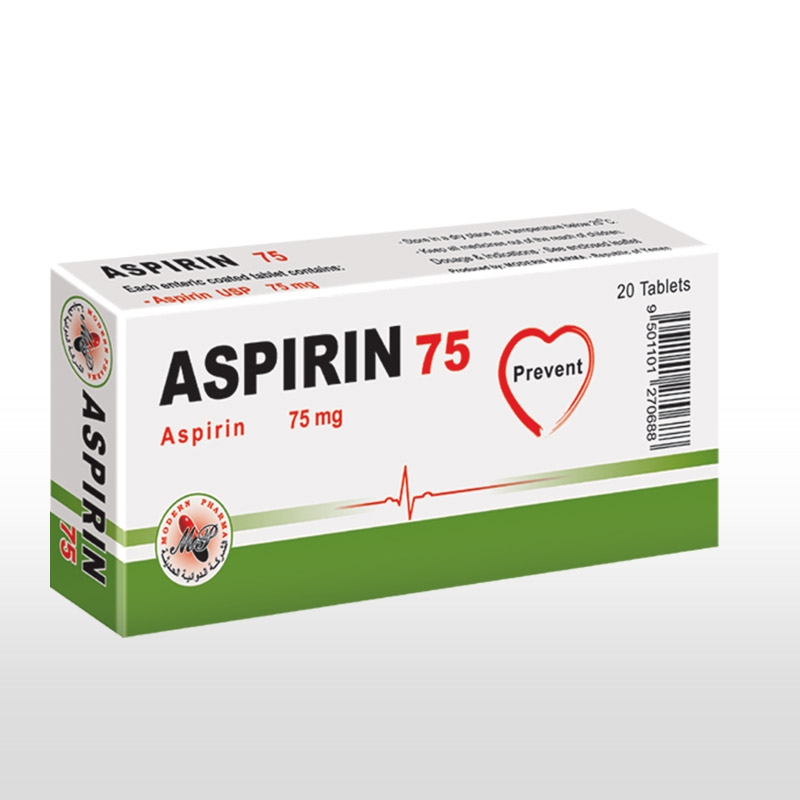ASPIRIN 75
- ASPIRIN is a salicylate NSAIDs, It’ s a well known analgesic,
anti-inflammatory and antipyretic agent. It acts as inhibitor of the
enzyme cyclo-oxygenase, which results in the direct inhibition of
the biosynthesis, from arachidenic acid, of prostaglandin in
addition to thromboxanes leading to inhibits platelet aggregation
- AASPIRIN is formulated as enteric coated tablets hence the
absorption occur in the intestine to minimizes the possible local
gastric irritation.
- ASPIRIN is absorbed rapidly from G.I.T. It is 80 - 90%bound to
plasma proteins.
- ASPIRIN is widely and rapidly distributed in the body, appears
in breast milk and crosses the placenta.
- ASPIRIN is rapidly converted to salicylate but during the first
20 minutes after absorption, ASPIRIN is the predominant form
of the drug in the plasma .
- ASPIRIN is mainly eliminated by hepatic metabolism as
metabolites.its also excreted unchanged in the urine.


